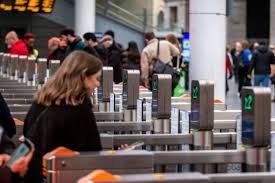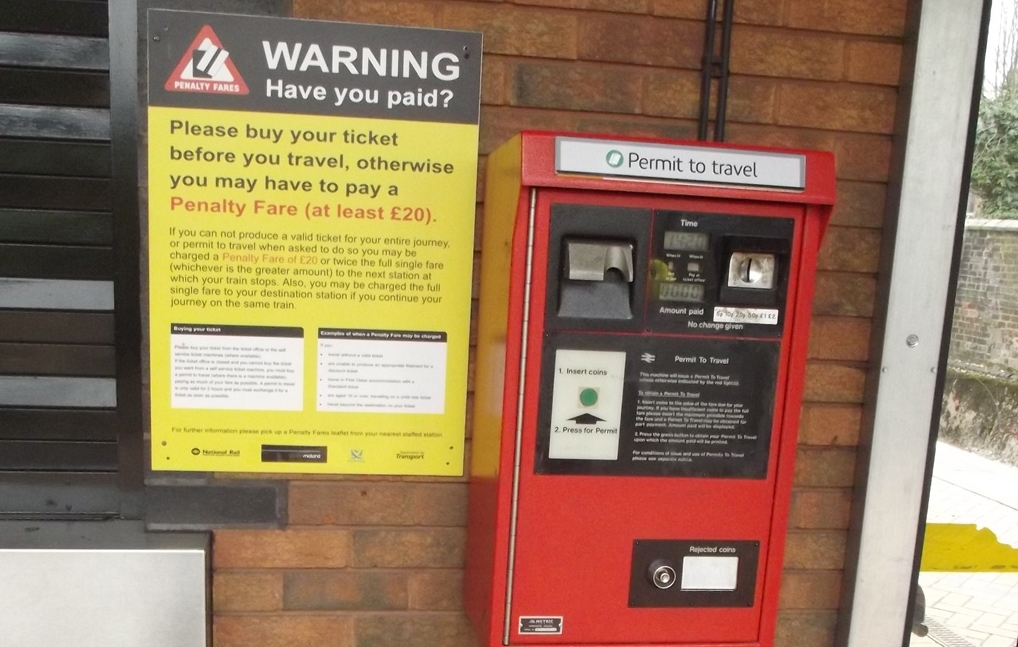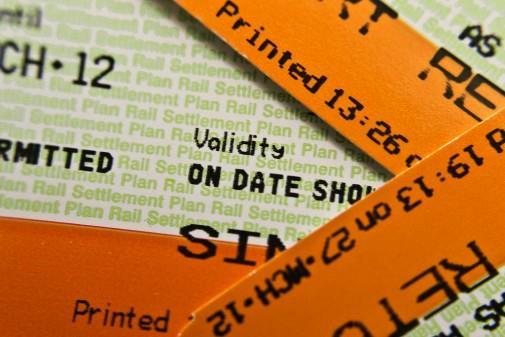Receiving a notice for fare evasion can be a stressful and unsettling experience, whether the accusation is a result of an honest mistake, like forgetting to tap in or out, or a more serious instance of deliberate fare dodging. In the UK, failing to address a fare evasion charge promptly can lead to considerable fines, and in some cases, even a criminal record. If you are facing the prospect of a penalty fare or, worse, a magistrates' court summons, you may wonder whether hiring a lawyer is worth the expense.
As a veteran solicitor who has helped countless clients resolve fare disputes, I've seen the pivotal difference professional legal support can make. Yet, in some cases, going it alone might be sufficient, particularly if the issue is a minor one that can be resolved administratively. In this article, we'll delve into the key benefits and potential downsides of engaging a lawyer for your fare evasion case, helping you decide when, and why, you might need professional representation.
1. Overview of Fare Evasion in the UK
Legal Context
Fare evasion in the UK is usually enforced through specific legislation and byelaws, such as the Regulation of Railways Act 1889, local transport byelaws, or operator-specific penalty fare regulations. In many cases, individuals are issued a Penalty Fare Notice on the spot, with a set timeframe (often 21 days) to pay or appeal.
Failing to resolve a penalty fare notice can lead to more severe consequences, including prosecution. Depending on the offence's nature, such as using someone else's season ticket, providing false details, or repeatedly travelling with insufficient funds on an Oyster or contactless card, the matter could escalate to a criminal court, resulting in a possible conviction if you are found guilty.
The Role of Legal Assistance
Much of the confusion around whether to hire a lawyer arises from the grey area between civil penalty notices and criminal prosecution. For some individuals, a simple penalty fare can be resolved or appealed without professional help. But if the charge threatens to jeopardise your finances, career, or immigration status, legal counsel may be invaluable.
2. Pros of Hiring a Lawyer for Fare Evasion
2.1 Expertise in Fare Evasion Legislation
One of the main advantages of hiring a lawyer is gaining access to specialised knowledge of fare evasion laws. Solicitors well-versed in transport regulations or criminal defence can immediately identify potential flaws in the operator's case, procedural errors, or mitigating circumstances that could reduce, or even negate, the charges against you.
Key Benefits
- Interpreting relevant byelaws or statutes in your favour.
- Spotting discrepancies in the transport operator's evidence.
- Advising on whether an out-of-court settlement is likely.
2.2 Negotiation Skills and Reduced Stress
A skilled lawyer can negotiate directly with transport authorities on your behalf, possibly preventing the case from escalating to a court hearing. Through a well-reasoned letter or phone call, they may secure a settlement, mitigating potential fines and criminal records.
Key Benefits
- Reducing the emotional burden of managing deadlines and complex paperwork alone.
- Potentially avoiding a full court appearance, which can be time-consuming and stressful.
2.3 Representation in Court
If your fare evasion issue reaches magistrates' court, having a lawyer to speak on your behalf can be immensely beneficial. A solicitor can present a cohesive argument, cross-examine witnesses, and highlight mitigating factors, such as financial hardship, honest mistakes, or family emergencies. This level of professional advocacy might result in lower fines, conditional discharges, or even an acquittal if the evidence is in your favour.
Key Benefits
- Ensuring that complex legal rules and guidelines are followed.
- Receiving a fair hearing and having a structured defence.
2.4 Protection Against Long-Term Consequences
A criminal record for fare evasion can have serious repercussions on future employment, professional licences, and travel visas. Hiring a lawyer can help you take steps to avoid or lessen these consequences, whether through strategic negotiation or careful presentation of extenuating circumstances before the court.
Key Benefits
- Preserving career opportunities and professional standing.
- Maintaining a clean criminal record, which has wide-ranging benefits.
3. Cons of Hiring a Lawyer for Fare Evasion
3.1 Legal Fees
The most obvious drawback is the cost of legal representation. Lawyer fees can vary significantly, and while some firms offer fixed rates for straightforward fare evasion cases, others charge hourly rates that can quickly add up. Balancing this expenditure against the size of the fine or penalty you're facing is crucial.
Key Considerations
- The fine for a first-time offence might be less than the legal fees involved.
- Solicitors may be willing to arrange payment plans or offer partial support (e.g., document review only) for those with tighter budgets.
3.2 Not All Cases Require Representation
Many fare evasion matters never reach court if the passenger pays or successfully appeals the penalty. If you have clear evidence of an honest mistake, such as a ticket machine failure or an unintentional oversight, it may be possible to resolve the issue directly with the operator's appeals department.
Key Considerations
- You may handle simple appeals yourself, avoiding extra costs.
- For minor infractions, the operator might be lenient if you communicate promptly and politely.
3.3 Time and Effort
Hiring a lawyer involves scheduling consultations, gathering documents, and potentially attending meetings or phone calls. While the lawyer will manage much of the case, you'll still need to invest personal time in discussing details and providing evidence. If the case is small and straightforward, self-resolution might be equally time-efficient.
Key Considerations
- Weigh the time required to instruct a solicitor against dealing with a minor penalty fare yourself.
- In some instances, a quick payment may close the matter faster than mounting a challenge.
4. Deciding Factors: When to Hire a Lawyer
4.1 High-Risk Situations
If you're a repeat offender, if the fare in dispute is substantial, or if you have an occupation where a criminal record could result in immediate dismissal or severe professional consequences, hiring a lawyer should be a strong consideration. Protecting your future livelihood often outweighs the cost of legal representation.
4.2 Unclear or Complex Evidence
When there's conflicting evidence, like CCTV footage that contradicts your story or technical data from ticket barriers, it can become challenging to prove your innocence without a thorough legal analysis. A solicitor can dissect the evidence meticulously and find gaps in the operator's case.
4.3 Court Summons Received
The moment you receive a court summons is often the clearest sign that professional advice might be warranted. Even if you plan to plead guilty, a lawyer can help prepare your mitigation plea, possibly resulting in a reduced penalty or conditional discharge.
4.4 Personal Confidence in Handling the Matter
Some individuals possess the time, organisation, and confidence to gather evidence, file appeals, and communicate effectively with transport operators. Others find these tasks stressful, especially under time pressure or if they risk losing their job over a potential conviction. Knowing your own capacity to cope with legal intricacies is key.
5. How to Choose the Right Lawyer
5.1 Specialisation in Fare Evasion or Transport Law
While general criminal defence solicitors can also help, a lawyer with specific experience in fare evasion cases brings valuable insights and established relationships with transport operators.
5.2 Transparent Fee Structures
Seek solicitors who offer clear, upfront fee arrangements, whether fixed fees for certain tasks or an estimated range based on the complexity of your situation. If money is tight, some may be open to instalment plans or limited-scope representation (e.g., handling the appeal letter only).
5.3 Client Reviews and Case Outcomes
Check online reviews or ask the lawyer for references. Satisfied clients and a track record of resolving fare disputes can indicate a solicitor's capability and reliability.
5.4 Communication Style and Availability
Fare evasion cases often move quickly, with tight deadlines for responding to notices. Ensure your chosen lawyer can respond promptly to calls and emails, and won't leave you waiting as deadlines approach.
Conclusion: Balancing Costs and Consequences, Choosing the Best Legal Strategy for Your Fare Evasion Case
Deciding whether to hire a lawyer for a fare evasion case can be a challenging judgement call. On the one hand, professional expertise may help you avoid a criminal record, negotiate a lesser penalty, or expose flaws in the operator's evidence. On the other, legal fees can add an extra financial burden, especially if the offence is minor and could be resolved through simple appeals. Ultimately, it's about weighing the potential long-term impact on your career and personal life against the costs involved, and determining how confident you feel in handling the complexities of fare evasion law alone. If you find yourself in a high-risk scenario, facing repeated allegations, or already summoned to court, seeking professional advice may be the best way to protect your interests and find a constructive resolution.



